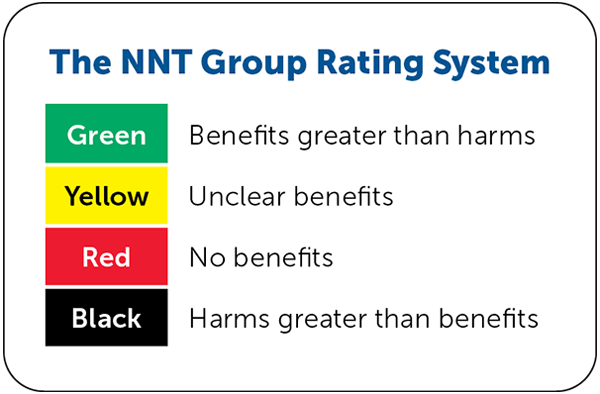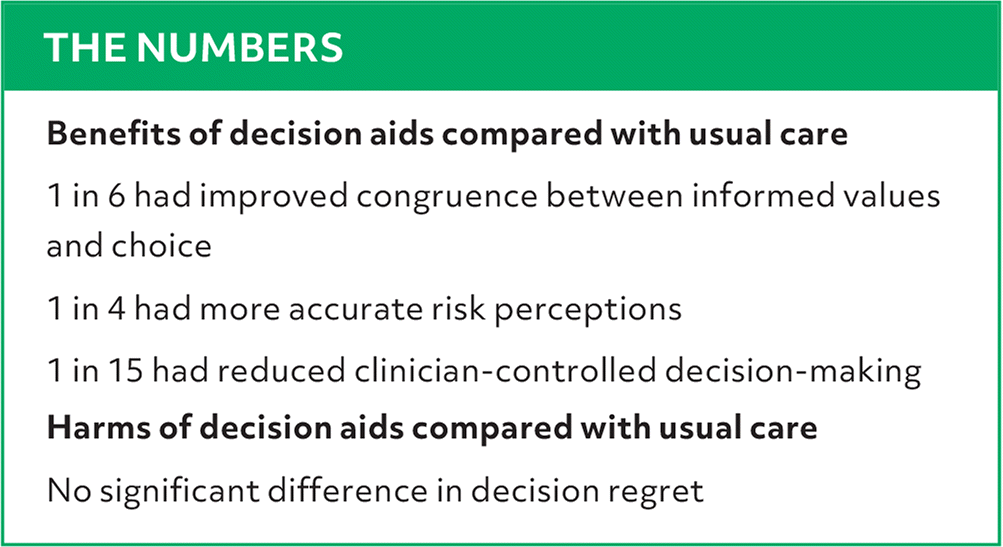
Am Fam Physician. 2024;110(3):online
Author disclosure: No relevant financial relationships.

DETAILS FOR THIS REVIEW
Study Population: 107,698 adults who make decisions for themselves, for a child, or as a proxy
Efficacy End Points: Congruence between informed values and choice, knowledge, accurate risk perceptions, and participation in decision-making
Harm End Points: Decision regret

| Benefits of decision aids compared with usual care |
| 1 in 6 had improved congruence between informed values and choice |
| 1 in 4 had more accurate risk perceptions |
| 1 in 15 had reduced clinician-controlled decision-making |
| Harms of decision aids compared with usual care |
| No significant difference in decision regret |
Narrative: Medical advances often improve life expectancy but have also complicated medical decision-making due to increased screening and treatment options. The U.S. Preventive Services Task Force recommends shared decision-making for eight preventive services (e.g., prostate cancer screening).1 Major payors also have weighed in. The Centers for Medicare & Medicaid Services mandate the use of patient decision aids during discussions of several preventive services (e.g., lung cancer screening).2 Tailoring patient care to individual values plays an essential role in clinical practice, and decision aids can assist in navigating communication between physicians and patients.
Subscribe
From $180- Immediate, unlimited access to all AFP content
- More than 125 CME credits/year
- AAFP app access
- Print delivery available
Issue Access
$59.95- Immediate, unlimited access to this issue's content
- CME credits
- AAFP app access
- Print delivery available
